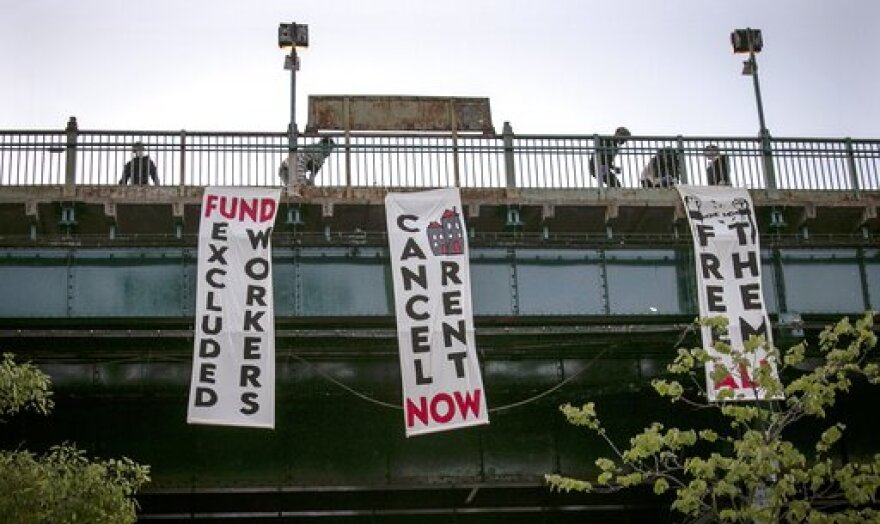ROCHESTER, NY (WXXI) - As unemployment bonuses dry up and New York’s eviction moratorium ends, concern is mounting about a wave of people being thrown out of their homes. Some landlords are concerned too.
Pat Gallagher is one of the largest property managers in Rochester, overseeing more than 600 properties. He sees a wave of court cases coming. On top of eviction cases that will happen due to the pandemic, there are also many cases before the pandemic have not been heard yet. It may take a while to get to all these cases, Mark Muoio of The Legal Aid Society of Rochester said only 40 evictions cases are heard each day.
Gallagher said most of his tenants who are behind on rent are using one of the programs offering rent assistance during the pandemic. But, he said, others are taking advantage of the situation.
“When we have people who don’t stay in touch with us, or we knock on the door and they refuse to answer, or they tell us to our face, ‘I’m not going to pay, do what you’re going to do,’ that’s when it gets frustrating because the courts are closed,” Gallagher said.
Karl Weekes, who owns more than a dozen properties in the city of Rochester and manages more than a hundred others, has similar concerns. He said the number of late rent payments are up slightly but said those tenants were already behind before the pandemic began.
Some of the problems he’s had with rent collection are caused by confusion about Gov. Andrew Cuomo’s pandemic rent protections.
“You hear ‘eviction moratorium,’ you hear a ‘stay on evictions,’ and any kind of closure of courts and the tenant community read that as you don’t have to pay rent,” Weekes said. “And I know, some of the folks have told me.”
Both Weekes and Gallagher expressed no objections to a Rochester City Council proposal to guarantee legal representation for tenants once they head to court.
Some courts are accepting filings but not setting appearance dates. That won’t happen until courts reopen.
Once a tenant appears in court, Muoio said the tenant will have to prove that they were impacted by COVID-19. Proof includes banking and unemployment information. If a judge agrees, their landlord can receive a judgement on that unpaid rent. Muoio said the goal is helping landlords collect what they can, while making sure renters stay in their home.
“Policy makers at the city level and the state level are trying to create a system where people who owe money are able to pay that back within certain boundaries,” said Muoio. “(Rochester) City Council has allocated at least $900,000 so far and is soon to allocate more in simply rental assistance and the state government, through the Department of Health, has contributed $100 million statewide.”
Jamie Michelle Cain, partner at the law firm Boylan Code and a lobbyist for the landlord group Under One Roof, said that landlords need to know why rent is not being paid.
“That’s why it's so important to get these courts open and have people start talking,” said Cain. “Not for the benefit of landlords being able to evict people. No one wants to evict people, but to have the conversation as to ‘why aren’t you paying?’ “


